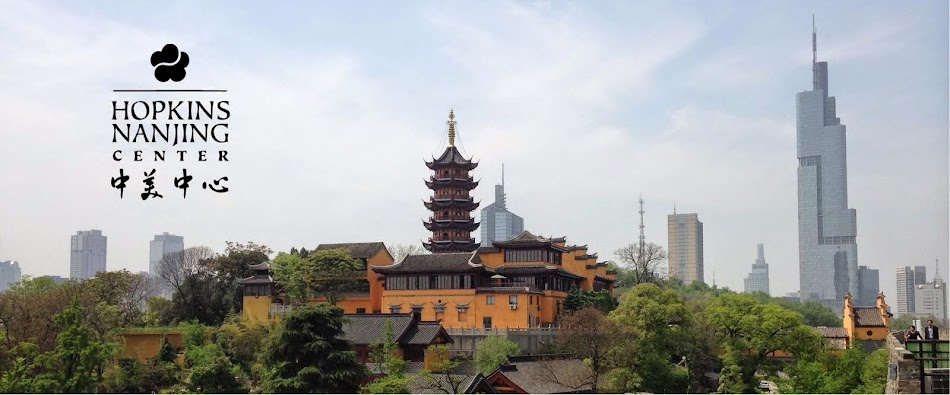There are many events at the HNC intended to help prepare students for the realities of post-graduation life. Career Services events, counseling, workshops, and company visits are all designed to help students make a smooth transition when it comes time to leave the HNC. I attended one of these events this past week, a yearly lecture about managing personal finances given by Professor Armstrong-Taylor.
Many of the economics classes here at the Center are taught by Professor Armstrong-Taylor, including this semester’s introductory course “U.S.-China Comparative Economies”, which I am currently enrolled in. Known fondly as “P.A.T.” by most students, Professor Armstrong-Taylor brings energy and passion to economics and I am finding my first introduction to “the dismal science” to be anything but.
Tuesday’s Personal Finance lecture was packed with both students and faculty, eager to improve on their financial know-how. It covered a wide range of practical topics, such as managing debt, savings, and investments. Professor Armstrong-Taylor began by talking about debt, an issue of concern for most students today. A useful way of looking at paying off debt, as he explained, is as a form of “saving” that should be prioritized over all other savings, and in order of highest to lowest rates. One encouraging aspect of the discussion was a statistic indicating that graduates with a higher degree earn an annual income that is on average $20,000 greater than those without. In other words, education itself is a kind of investment, and one with sizeable returns.

Also covered in the lecture was a few basic rules of savings and investment, such as the importance of diversifying and rebalancing investments, avoiding over-trading, and minimizing fees and taxes related in inefficient, outdated modes of investing. After the lecture had ended, Professor Armstrong-Taylor took the time to answer a few of my lingering questions.
In your lecture you underscored the importance of investing early to maximize returns from compounding interest. Roughly speaking, how much funds should be kept in liquid assets?
It is generally recommended to have enough to cover around three to six months of expenses, which also depends on how secure your income is. In terms of how much cash to hold, how many stocks to hold, and how many bonds to hold, it’s all just guidelines really and may vary depending on the particular person and how comfortable they are with risk. The determination of how many liquid assets to hold involves a trade-off, because liquid assets such as cash tend to earn low returns, so the more you have the lower your average investment return. On the other hand, the risk of having too few liquid assets is that if you have an emergency expenditure, you would be forced to sell illiquid assets and may not get a good price (i.e. a fire sale).
You also highlighted the advantages of new automated methods of investment such as ETFs and index funds, particularly over stock portfolio managers and hedge-fund managers that come with higher fees because you’re hiring someone to handle your investments for you. If these new methods are so effective, why do people still rely on more traditional, less cost-efficient methods of investment?
That’s a good question, and a lot of people think it doesn’t make sense, but actually it’s been changing quite recently. A lot of money is leaving these active-investment managers and going into passive investments, namely index funds and ETFs. Also, these new forms of investments have really only developed over the past five or ten years, and it takes time for things to transition over.
Is there a common mistake that you see students making in terms of mishandling their finances? Do you have any recommendations for how to avoid this mistake?
I think one thing is to get accustomed to saving and living within your means. There is a two-fold benefit to this. First of all, I talked about compounding returns so the earlier you save the bigger the benefits. Additionally, if you get used to living within a budget it also lowers your costs throughout your life. There’s a tendency for people’s expenditures to expand to meet their incomes, so it doesn’t matter how much money they have, they always feel like they need more. Probably most peoples’ problem is that they haven’t saved enough, so making a habit of paying down your debt and saving early is essentially the most important thing you can do. Which isn’t to say you shouldn’t spend any money, because with something like education you’re going to get a return on that. It’s important to just be conscious of what you’re spending your money on. A lot of people when they’re older look back at the happiest times of their life, and it’s often when they were a student. When you’re a student, you don’t really have any money. When you’re older, you have more money but it doesn’t necessarily make you any happier. I think people often spend money because they think it’s going to make a big difference in their life and often it doesn’t. The earlier that you realize that buying stuff doesn’t actually have a big long-term effect on your happiness then it sort of frees you from that consumer treadmill.
Thank you, Professor Armstrong-Taylor, for your time and guidance!
Written by Amanda Bogan, HNC Certificate '17







